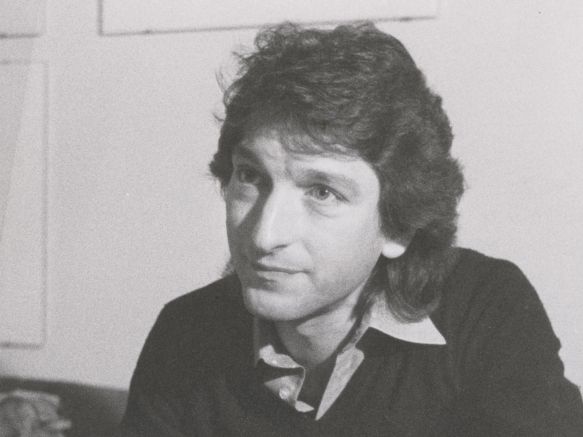
Christian Rischert
Director, Screenwriter, film producer, narrator
* in Munich
In 1959 Christian Rischert founded the Arcis-Film production company, which produced more than 300 educational, advertising and industrial films. Between 1961 and 2009, he filmed and produced more than 50 films, mainly for television starting in the 1970s. The documentaries ‒ many devoted to travel, food and drink, and some of which were screened at the cinema ‒ represent broadcasting series of the Bayerischer Rundfunk such as ‘à la carte’ and ‘Die Weinmacher’.
About the Estate
The Deutsche Kinemathek has been preserving and distributing Christian Rischert’s cinematic work since 2016. “The feature film is an exception in Rischert’s film oeuvre; instead a documentary approach to what is life is his norm”, Martin Koerber, the former director of the Kinemathek’s Film Archive, stated in 2016. Rischert’s most well-known feature films, ‘Kopfstand, Madam!’ (FRG, 1967) and ‘Lena Rais’ (FRG, 1979), have in common that their leading female characters break out of their middle-class marriages so that they can work and fall in love with other men. On the poster for ‘Lena Rais’ stands: “Alles wird jetzt anders. Jetzt wird gelebt” (Everything will be different now. Now we start living!). It could easily have been the headline for many feminist films of this period.
Rischert also captures poetic everyday images in ‘Der Tod des Fischers Marc Leblanc’ (FRG, 1974‒76). Shortly after Rischert’s arrival in Normandy to film a feature film in which Marc Leblanc was meant to appear, the fisherman committed suicide. Rischert, who got to know and appreciate Leblanc and his family two years before while shooting a documentary film, set off in search of clues and tried to understand the unfathomable. In 1990 the publicist Wilhelm Roth summed up Rischert’s style [here in translation]: “Rischert has – subtly – remained political, but he is a director who observes people, passes on experiences, always and quite emphatically talks about himself, who shares his feelings, thoughts and associations ... a filmmaker, then, who does not pontificate. Political – and ecological – insights come to him through his senses.”
Rischert’s films are nearly completely available, with the exception of his advertising and industrial films from the 1960s. Materials that accompanied the films, such as posters, photos, press clippings and production records enhance the archive. Rischert’s correspondence with co-producing television stations show how difficult it was for him to convince them of his aesthetic and contextual methods. (Text: Connie Betz)
Content
Print, Film, Photography, Paper documents, Skript (Schriftstück)
Dimension
approx. 1.0 Shelf meter
Inv. No.
201309
Credit LineChristian Rischert Archiv, Deutsche Kinemathek